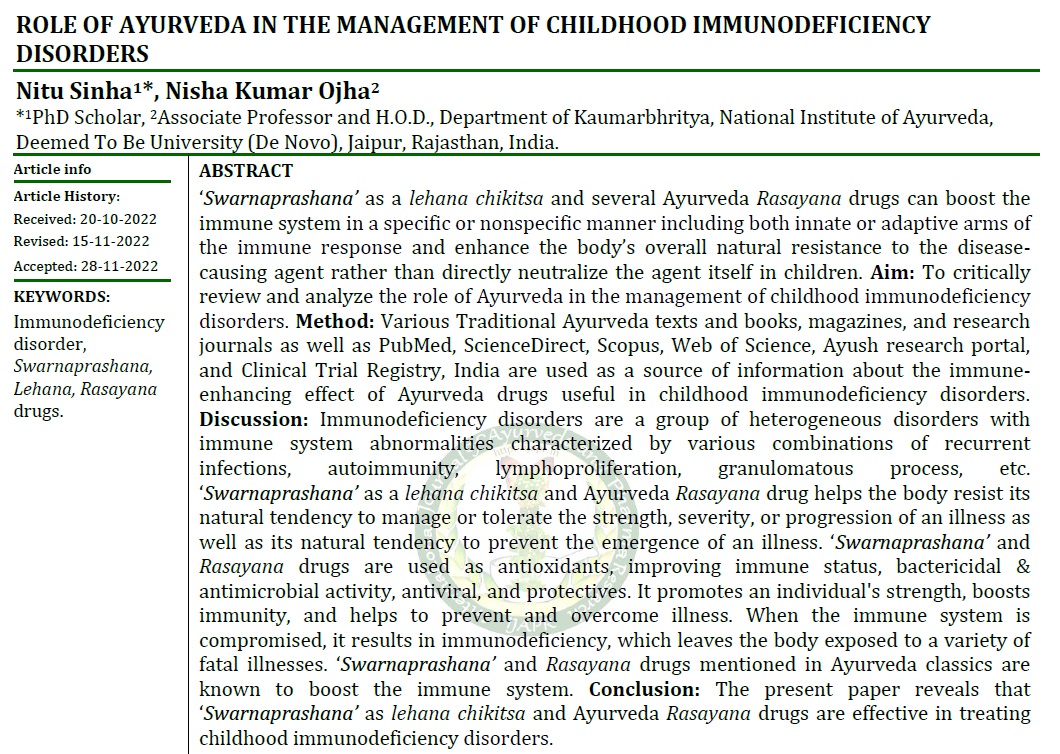Role of Ayurveda in the Management of Childhood Immunodeficiency Disorders
DOI:
https://doi.org/10.47070/ijapr.v10i11.2584Keywords:
Immunodeficiency disorder, Swarnaprashana, Lehana, Rasayana drugsAbstract
‘Swarnaprashana’ as a lehana chikitsa and several Ayurveda Rasayana drugs can boost the immune system in a specific or nonspecific manner including both innate or adaptive arms of the immune response and enhance the body’s overall natural resistance to the disease-causing agent rather than directly neutralize the agent itself in children. Aim: To critically review and analyze the role of Ayurveda in the management of childhood immunodeficiency disorders. Method: Various Traditional Ayurveda texts and books, magazines, and research journals as well as PubMed, ScienceDirect, Scopus, Web of Science, Ayush research portal, and Clinical Trial Registry, India are used as a source of information about the immune-enhancing effect of Ayurveda drugs useful in childhood immunodeficiency disorders. Discussion: Immunodeficiency disorders are a group of heterogeneous disorders with immune system abnormalities characterized by various combinations of recurrent infections, autoimmunity, lymphoproliferation, granulomatous process, etc. ‘Swarnaprashana’ as a lehana chikitsa and Ayurveda Rasayana drug helps the body resist its natural tendency to manage or tolerate the strength, severity, or progression of an illness as well as its natural tendency to prevent the emergence of an illness. ‘Swarnaprashana’ and Rasayana drugs are used as antioxidants, improving immune status, bactericidal & antimicrobial activity, antiviral, and protectives. It promotes an individual's strength, boosts immunity, and helps to prevent and overcome illness. When the immune system is compromised, it results in immunodeficiency, which leaves the body exposed to a variety of fatal illnesses. ‘Swarnaprashana’ and Rasayana drugs mentioned in Ayurveda classics are known to boost the immune system. Conclusion: The present paper reveals that ‘Swarnaprashana’ as lehana chikitsa and Ayurveda Rasayana drugs are effective in treating childhood immunodeficiency disorders.
Downloads




